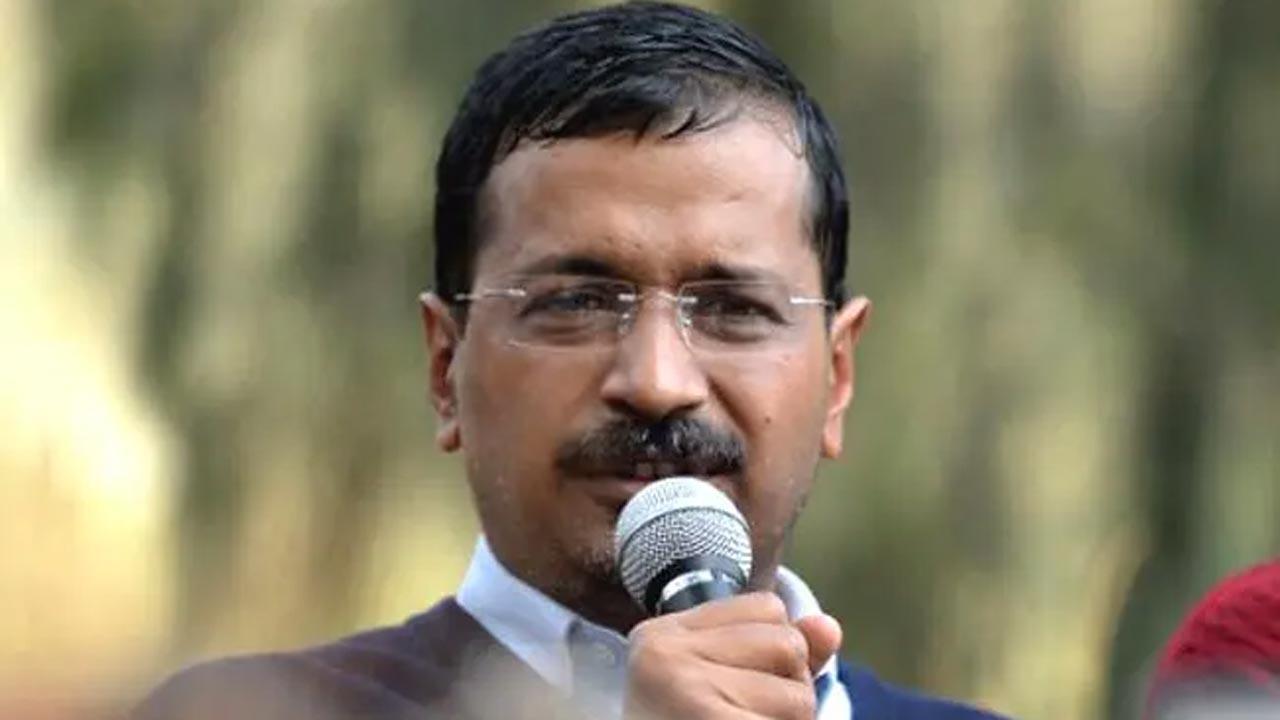During his visit, Chief Minister Kejriwal will be accompanied by Punjab counterpart Bhagwant Mann, AAP MPs Sanjay Singh and Raghav Chadha and Delhi Minister Atishi will also be present at the meeting

Arvind Kejriwal. Pic/AFP
In an effort to garner opposition parties' support against the Centre's ordinance on control of administrative services in the national capital, Delhi Chief Minister Arvind Kejriwal will meet NCP supremo Sharad Pawar on Thursday.
The meeting will be around 3 pm today.
During his visit, Chief Minister Kejriwal will be accompanied by Punjab counterpart Bhagwant Mann, AAP MPs Sanjay Singh and Raghav Chadha and Delhi Minister Atishi will also be present at the meeting.
Delhi CM also met Shiv Sena (UBT) leader Uddhav Thackeray on Wednesday.
Also Read: Modi sarkar won’t return in 2024: Delhi CM Arvind Kejriwal
The Delhi Chief Minister on Tuesday embarked on a nationwide tour to seek support from the Opposition parties against the ordinance brought by the central government on the transfers and postings of bureaucrats in the national capital.
The Aam Aadmi Party (AAP) national convenor accused the Centre of "taking away the rights" of the people of Delhi and said that the ordinance "should not" be allowed to pass in Rajya Sabha.
This comes after the Union Government on May 19 brought an ordinance to notify rules for the Government of National Capital Territory of Delhi (GNCTD) regarding the 'transfer posting, vigilance and other incidental matters'.
The ordinance was brought to amend the Government of National Capital Territory of Delhi Act, 1991 and it circumvents the Supreme Court judgement in the Centre vs Delhi case.
Earlier, CM Kejriwal met West Bengal Chief Minister Mamata Banerjee in Kolkata on Tuesday and sought her support against the ordinance.
This story has been sourced from a third party syndicated feed, agencies. Mid-day accepts no responsibility or liability for its dependability, trustworthiness, reliability and data of the text. Mid-day management/mid-day.com reserves the sole right to alter, delete or remove (without notice) the content in its absolute discretion for any reason whatsoever
 Subscribe today by clicking the link and stay updated with the latest news!" Click here!
Subscribe today by clicking the link and stay updated with the latest news!" Click here!










